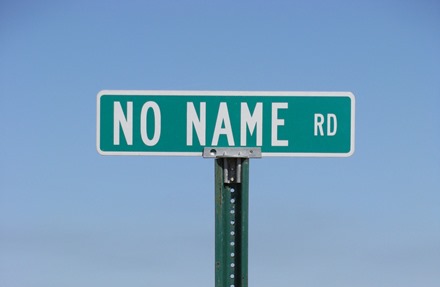This post was contributed by Professor Penelope Gardner-Chloros, Department of Applied Linguistics and Communication
 It seems that we now have a terrible enemy who cannot be named – or rather whose naming causes a major headache. For many months now, on hearing the term ‘Isis’ we have not thought about a certain Egyptian goddess, or about the river that flows through Oxford. The name is now indelibly associated with one of the most evil organisations of modern times, which adopted the acronym of ‘Islamic State in Iraq and Syria’ (or sometimes ‘Islamic State in Iraq and the Levant’, ISIL).
It seems that we now have a terrible enemy who cannot be named – or rather whose naming causes a major headache. For many months now, on hearing the term ‘Isis’ we have not thought about a certain Egyptian goddess, or about the river that flows through Oxford. The name is now indelibly associated with one of the most evil organisations of modern times, which adopted the acronym of ‘Islamic State in Iraq and Syria’ (or sometimes ‘Islamic State in Iraq and the Levant’, ISIL).
Because of fears that calling the organisation by this name may legitimise it, some politicians and other public figures in the West have been calling it ‘so-called’ Islamic State, using the verbal equivalent of the two-fingered “scare quotes” gesture which has become part of our gestural vocabulary. There is also a move to call it ‘Daesh’ instead, another acronym which the organisation itself is said not to like.
This is how we in the West shake our tiny fists at the evil monster, even though, to paraphrase Shakespeare, a terrorist by any other name would smell as rank. Ah, the power of names! How can a simple label mean so much? And how do names acquire their symbolic power?
The power of names
The power of names is a recurrent theme in religions, myths and fairy tales. For example the issue of how to name God is an important issue in many religions. In Exodus 3:13-15, Moses asks God who he should say has sent him, and God replies ‘I am who I am’. It is as if God himself did not want to share an actual name with humans, because knowing someone’s name gives you a certain power over them.
In the Odyssey, after Odysseus has got the Cyclops drunk, he tells the monster that his name is ‘Nobody’’ When Odysseus later blinds the Cyclops in order to escape his clutches, his fellow Cyclops come to their brother’s rescue, but when they ask who has hurt him, the Cyclops replies ‘Nobody’ and the other Cyclops understandably lose interest and shuffle off.
Names are important also in traditional fairy tales. Those brought up on Grimm’s tales will remember Rumpelstiltskin, the evil dwarf who loses his power to harm people if they guess his name. And then of course there is Harry Potter, and the villain Voldemort who cannot be named for fear of conjuring him up. He is known throughout as ‘he who cannot be named’.
Marking changes in style, identity and allegiance
But back to ‘so-called’ Islamic State. Radicalised European or American Jihadist fighters change their names from their bland-sounding European ones to Arab ones that make them sound like the holy fighters they profess to be, the change of names marking a clear change in identity. If they return and are deradicalised, their names change back too. Many of us with less sinister motives make minor or greater changes to our names to mark changes in style, identity or allegiance.
We encourage or discourage nicknames and abbreviations at different stages in our life, reflecting how we wish to be seen – remember for example when Kate became Catherine? When we marry, we may change – or resolutely not change – our surnames – if of course this is allowed or encouraged in our culture (in some countries, such as Iceland, the issue does not arise and names are not enmeshed in a patriarchal system).
In Britain we might use our second name rather than our first; but this would not work in a country such as Russia where the second name is invariably a patronymic, i.e. your father’s first name, regardless of your gender. You may even be known by different names in different places – such as Jack in town and Ernest in the country.
Magic? Perhaps not. But certainly another facet of the power of words.
Find out more
- Professor Penelope Gardner-Chloros
- Department of Applied Linguistics and Communication
- Further reading: Isis, Isil, IS or Daesh? One group, many names (By Faisal Irshaid, BBC Monitoring, 2 December 2015)


Great post! The same names can also sound and feel different in different languages. I have a soft spot for how my name sounds in French, perhaps out of nostalgia for the country I grew up in – but also because I dislike being called “Lou” (sounds like “loo”)!
Ewa/Eva Hoffman wrote in her memoir ‘Lost in Translation’ about how painful it was to be renamed on her immigration to Canada: “This morning, in the rinky-dink wooden barracks where the classes are held, we’ve acquired new names. […] Mine – “Ewa” – is easy to change into its near equivalent in English, “Eva.” […] We make our way to a bench at the back of the room; nothing much has happened, except a small, seismic mental shift. The twist in our names takes them a tiny distance from us – but it’s a gap into which the infinite hobgoblin of abstraction enters. Our Polish names didn’t refer to us; they were as surely us as our eyes or hands. These new appellations, which we ourselves can’t yet pronounce, are not us. They are identification tags, disembodied signs pointing to objects that happen to be my sister and myself. We walk to our seats, into a roomful of unknown faces, with names that make us strangers to ourselves.”